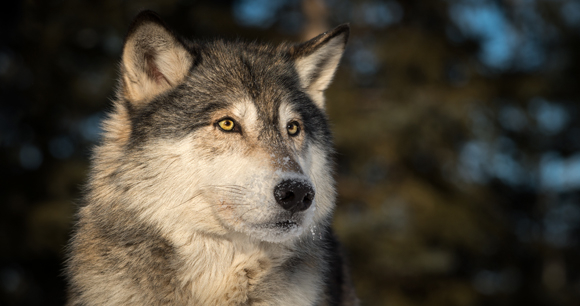
Washington, DC—Today, the Animal Welfare Institute (AWI) announced the nine recipients of its Christine Stevens Wildlife Award who are developing innovative, less intrusive wildlife study techniques and more humane methods of resolving conflicts between wild animals and humans.
Established in 2006, the award provides individual grants of up to $15,000 and is named in honor of AWI’s late founder and longtime president, who dedicated her life to reducing animal suffering both here and abroad. Stevens founded AWI in in 1951 to end the cruel treatment of animals in experimental laboratories. Inevitably, her work expanded to take on other animal welfare causes, including protecting vulnerable species, reforming methods used to raise animals for food, banning steel-jaw leghold traps, ending commercial whaling, and much more.
“The Christine Stevens Wildlife Award aims to inspire a new generation of compassionate wildlife scientists, managers, and advocates,” said Cathy Liss, president of AWI. “These exciting research projects strive to develop more humane techniques to study wildlife, and to help humans and wildlife coexist amid habitat destruction and climate change.”
The 2021 Christine Stevens Wildlife Award grant recipients are:
- Cody Aylward of University of California, Davis for developing and implementing a novel, noninvasive genetic survey of the endangered salt marsh harvest mouse.
- Dr. Zoe Hanley of Defenders of Wildlife for testing and evaluating advanced radio-activated guard box technology to deter gray wolves from killing livestock in grazing areas in select western states, thereby further developing an important tool for reducing predator-livestock conflicts.
- Dr. Karen Herman of Sky Mountain Wild Horse Sanctuary for evaluating refined PZP-22 fertility control vaccines for wild horses in the Carson National Forest in northern New Mexico, and monitoring the results to develop long-term, minimally invasive, and sustainable herd management.
- Dr. Aerin Jacob of Yellowstone to Yukon Conservation Initiative for measuring winter recreation and how it may affect at-risk species, including wolverines and grizzly bears, in the Canadian Rockies.
- Dr. Susan McRae of East Carolina University for developing noninvasive monitoring techniques, including the use of infrared trail cameras and collecting and analyzing environmental DNA from soil and water samples, to improve the conservation of threatened eastern black rails in North Carolina.
- Dr. Maureen Murray of Cummings School of Veterinary Medicine at Tufts University for investigating rodenticide exposure among red-tailed hawks, with broader implications for other birds of prey.
- Dr. Beth Brady of Mote Marine Laboratory for using novel technologies, including aerial drones and acoustic recordings, to investigate how Antillean manatees are affected by tour boats in Mexico’s Sian Ka’an Biosphere Reserve.
- Dr. Tracey Tuberville of University of Georgia's Savannah River Ecology Laboratory for evaluating the suitability of repatriating confiscated and rehabilitated Eastern box turtles — recovered from the illegal wildlife trade — back into the wild.
- Dr. Jessica Castillo Vardaro of San Jose State University for assessing the American pika population’s vulnerability to various threats, including climate change and livestock grazing, through genetic analysis of their fecal pellets.
Click here for more information about the Christine Stevens Wildlife Award and the 2021 winners.
Marjorie Fishman, Animal Welfare Institute
[email protected], (202) 446-2128
The Animal Welfare Institute (awionline.org) is a nonprofit charitable organization founded in 1951 and dedicated to reducing animal suffering caused by people. AWI engages policymakers, scientists, industry, and the public to achieve better treatment of animals everywhere—in the laboratory, on the farm, in commerce, at home, and in the wild. Follow us on Facebook, Twitter, and Instagram for updates and other important animal protection news.